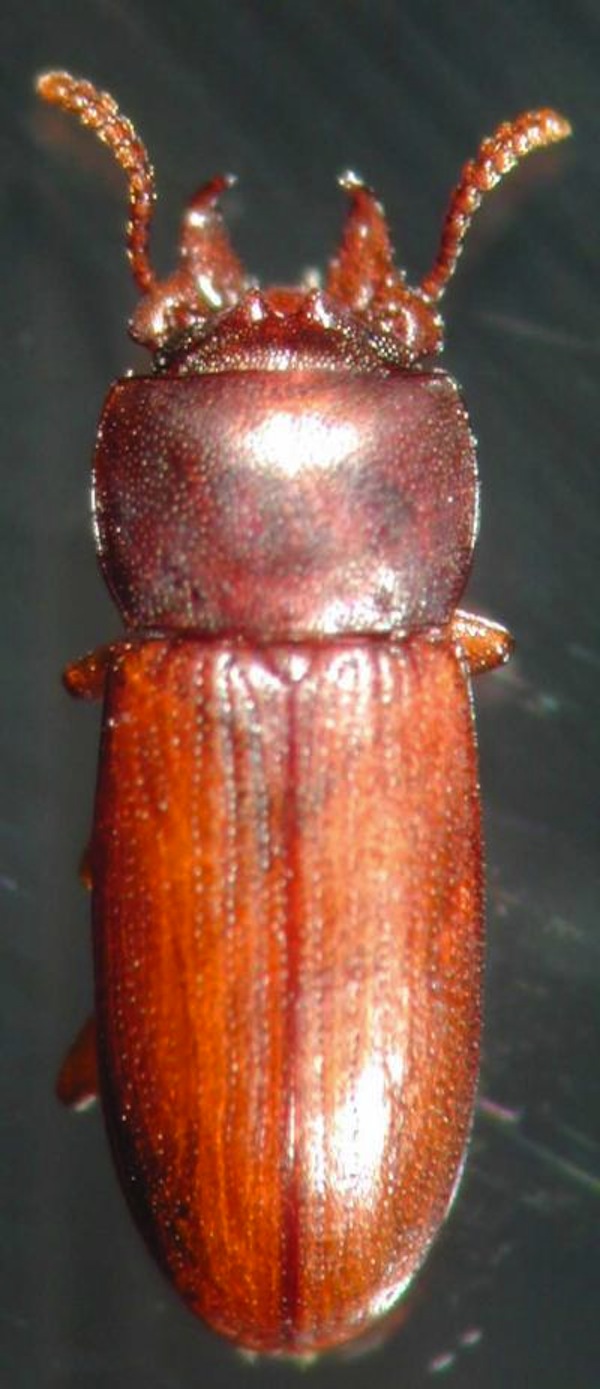Female Beetle Can Manipulate Offspring's Sex

Human mothers the world over may wish they had this ability: Female beetles can skew the sex of their offspring.
The decisions seem to be based on the mama-to-be's own masculinity or femininity. Female beetles with manly features and strong fathers have more sons, while fit ladylike female beetles have more daughters. This study shows for the first time that females are able to manipulate the gender of their offspring to compensate for the fact that some of the genes that make a good male make a bad female and vice versa.
"The basic premise is that the genes that make a good female or a good male don’t necessarily make a good male or female [respectively]," study researcher David Hosken, of the University of Exeter in the United Kingdom, told LiveScience. "If you are a high-quality female you might produce low-quality sons."
Manipulating mandibles
The defining characteristic of a strong male beetle is his big mandibles — the piercing jaw area. To support these big bites, the males shift their body around to accommodate, but they are important in beetle-on-beetle warfare over mates: The bigger jaws usually win. The problem is that the shifted body plan and big jawbones are passed down to their daughters, leaving them with less energy and room for eggs. They are therefore "less fit" and have fewer offspring.
The researchers studied a colony of broad-horned flour beetles in the lab. They counted the offspring of female beetles and analyzed the size and shape of the mother's father. In normal populations they found a skew toward male offspring when the fathers had big, strong jaws.
"We looked at the sex ratios of the offspring produced by females from those populations," Hosken said. They saw that "high-quality females produce more daughters than sons."
Sign up for the Live Science daily newsletter now
Get the world’s most fascinating discoveries delivered straight to your inbox.
They repeated the experiments with specially selected beetles to have bigger-than-normal or smaller-than-normal jaws. This made it even easier to see the sex-ratio skew. The highest gender skew the researchers saw was 57 males for every 43 females in the population specially selected for its masculine traits (instead of an even 50/50).
Strong jaw
The female seems to be changing the sex ratio of her offspring to compensate for her more masculine frame, inherited from its father.
"If you have a male with large mandibles, there's a whole bunch of associated changes to muscles and to body shape," Hosken said. "Daughters inherit that masculinized body shape, so they can't hold as many eggs."
This makes sense that in such cases mothers would want to have more male offspring — their body size is great for males, just not too good for females. The pressure works the opposite way as well: Smaller jaws on a male mean his daughters are more fit, and so the soon-to-be mothers then manipulate their eggs to make more females.
The researchers don't know how the females can manage to change their offspring ratio. It could be hormone-related, but they aren't sure. The findings should hold for other insects, and even mammals, though other factors could be at play in different species.
The study was published in the January 2012 issue of the journal Ecology Letters.
You can follow LiveScience staff writer Jennifer Welsh on Twitter @microbelover. Follow LiveScience for the latest in science news and discoveries on Twitter @livescience and on Facebook.
Jennifer Welsh is a Connecticut-based science writer and editor and a regular contributor to Live Science. She also has several years of bench work in cancer research and anti-viral drug discovery under her belt. She has previously written for Science News, VerywellHealth, The Scientist, Discover Magazine, WIRED Science, and Business Insider.










